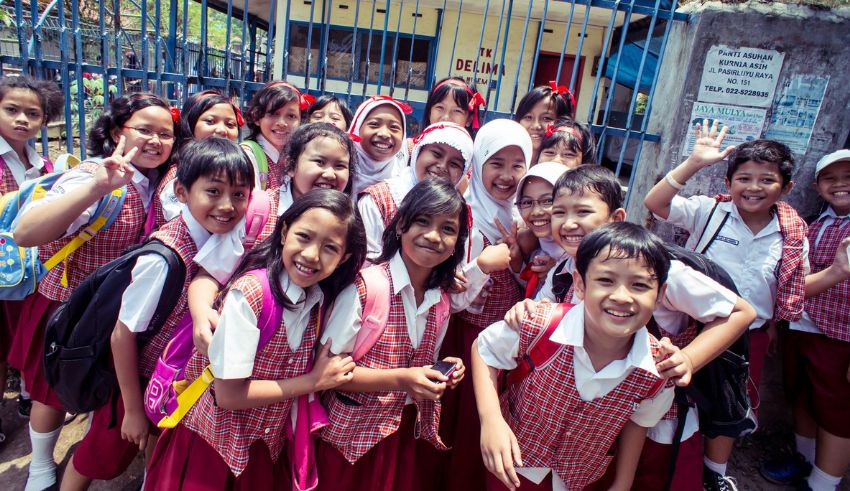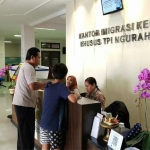
Australia, the neighboring country and strategic partner of Indonesia, has been telling Indonesia to improve its education system and outcomes, as part of its efforts to enhance the bilateral relations and cooperation between the two countries. Australia has been providing various forms of assistance and support to Indonesia’s education sector, such as funding, scholarships, training, and policy advice. Australia has also been encouraging more Australian students and institutions to engage with Indonesia through language learning, academic exchange, and transnational education.
What are the benefits of better education for Indonesia?
Better education for Indonesia could bring many benefits for the country and its people, such as:
- Economic growth and development: Better education could boost Indonesia’s economic growth and development, by enhancing the productivity, skills, and innovation of its workforce, and by attracting more investment and trade opportunities. Education could also reduce poverty and inequality, by increasing the income and opportunities of the poor and marginalized groups, and by promoting social mobility and inclusion.
- Political stability and democracy: Better education could strengthen Indonesia’s political stability and democracy, by fostering a more informed, engaged, and responsible citizenry, and by supporting the development of effective and accountable institutions and leaders. Education could also prevent and resolve conflicts, by promoting a culture of dialogue, tolerance, and peace, and by addressing the root causes of violence and extremism.
- Cultural diversity and identity: Better education could celebrate and preserve Indonesia’s cultural diversity and identity, by respecting and valuing the different languages, religions, ethnicities, and traditions of its people, and by enhancing their sense of belonging and pride. Education could also foster mutual understanding and cooperation, by exposing and connecting the people to other cultures and perspectives, and by enhancing their intercultural and global competencies.
What are the challenges and gaps in Indonesia’s education system?
Indonesia’s education system faces many challenges and gaps, despite the significant progress and achievements it has made in recent years, such as:
- Access and quality: Indonesia’s education system still suffers from low access and quality, especially in the rural, remote, and disadvantaged areas, where many children and youth are out of school or drop out early, and where the schools and teachers lack adequate resources and facilities. Indonesia’s education system also struggles to meet the standards and expectations of the 21st century, where the students need to acquire not only basic literacy and numeracy, but also higher-order thinking and digital skills.
- Relevance and alignment: Indonesia’s education system still faces a mismatch and a gap between the supply and demand of the labor market, where many graduates are either unemployed or underemployed, and where many employers are dissatisfied with the skills and competencies of the workforce. Indonesia’s education system also needs to align and harmonize with the regional and international frameworks and benchmarks, such as the ASEAN Qualifications Reference Framework and the Programme for International Student Assessment, to ensure its recognition and competitiveness.
- Governance and management: Indonesia’s education system still suffers from poor governance and management, due to the complexity and fragmentation of the system, which involves multiple levels and actors, such as the central, provincial, and district governments, the public and private sectors, and the civil society and religious organizations. Indonesia’s education system also faces issues of corruption, inefficiency, and politicization, which undermine its quality and accountability.
Keep Reading
What are the roles and initiatives of Australia in Indonesia’s education sector?
Australia has been playing an active and constructive role in Indonesia’s education sector, by providing various forms of assistance and support, such as:
- Funding and scholarships: Australia has been providing substantial and sustained funding and scholarships to Indonesia’s education sector, through its official development assistance and its bilateral and multilateral partnerships. For example, Australia has been supporting the Innovation for Indonesia’s School Children (Inovasi) program, which aims to improve the quality and outcomes of basic education in Indonesia, by testing and scaling up innovative and evidence-based solutions. Australia has also been offering scholarships and fellowships to Indonesian students and professionals, such as the Australia Awards and the New Colombo Plan, which enable them to pursue their studies and careers in Australia or other countries.
- Training and policy advice: Australia has been providing valuable training and policy advice to Indonesia’s education sector, through its academic and research institutions and its technical and vocational education and training (TVET) providers. For example, Australia has been collaborating with the Indonesian Ministry of Education and Culture to develop and implement the National Education Standards, which aim to improve the curriculum, assessment, and accreditation of the education system. Australia has also been assisting the Indonesian Ministry of Manpower to reform and strengthen the TVET system, which aims to enhance the skills and employability of the workforce.
- Academic exchange and transnational education: Australia has been encouraging and facilitating more academic exchange and transnational education between the two countries, through its language and cultural programs and its higher education institutions. For example, Australia has been promoting and supporting the learning of Bahasa Indonesia in Australian schools and universities, as well as the learning of English in Indonesian schools and universities, through various initiatives and resources, such as the Australian Curriculum, the Asia Education Foundation, and the Australia-Indonesia Institute. Australia has also been establishing and expanding its presence and partnerships in Indonesia’s higher education sector, such as the Monash University campus in Jakarta, which is the first and only foreign university campus in Indonesia.
Australia is telling Indonesia to improve its education system and outcomes, as it believes that education is the key to the development and prosperity of both countries. Australia has been providing various forms of assistance and support to Indonesia’s education sector, as well as encouraging more academic exchange and transnational education between the two countries. Australia hopes that its role and initiatives in Indonesia’s education sector will enhance the bilateral relations and cooperation between the two countries, and will benefit the people and the region.



























